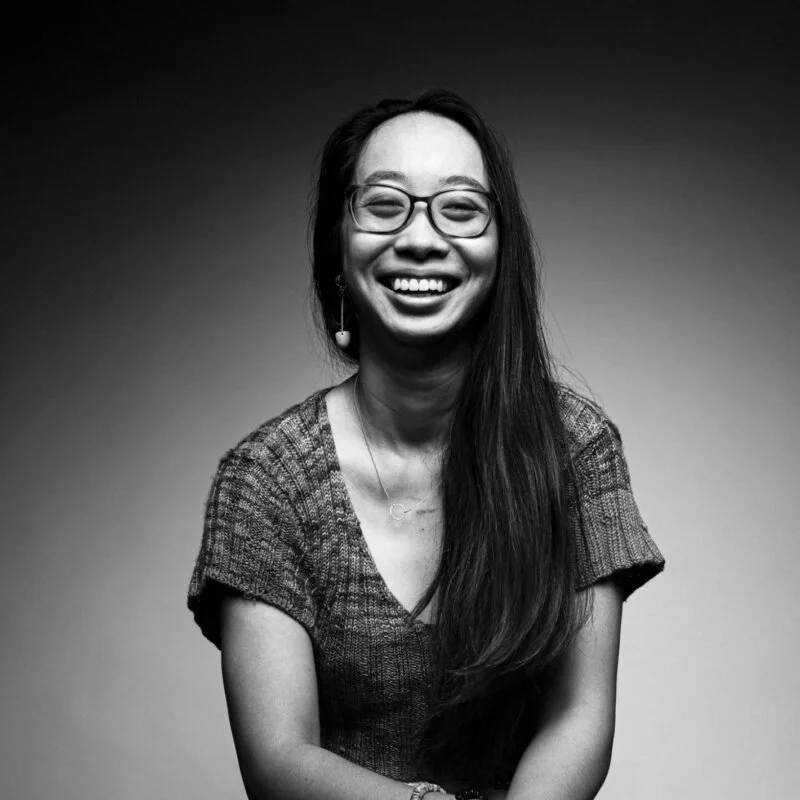“[…] most of the existing Asian-Australian stories we hear are focused on Asian diaspora in major cities, often overshadowing stories about those from or living in regional towns. “
Read More“Working with the Vietnamese community in Sunshine and the surrounding suburbs was my way of learning more about the post-war impact that led to the division between communities in Vietnam—especially so considering that the Vietnamese perspective is consistently ignored from the US dominant narrative.”
Read More“It’s a wilful inscrutability, because I never want to be co-opted.”
Read More“I like to think that writing creatively within the exacting constraints of form is my way of simultaneously embodying and satirising the experience of being a creative in Singapore.”
Read More“I define artistic success as creating work that I am personally proud of.”
Read More“That journey is so endless: seeing the people who raised you as people, [and] realising they existed wholly without you.”
Read More“The YA genre may seem trite [to some], but even before YA was a category, ‘YA’ books were being used [as teaching aids] in school such as The Outsiders or The Catcher in the Rye, which suggests that YA can rightly be used to convey serious and important issues, especially to a younger audience.”
Read More“[…] the aim of literature is to provide an elevated and truthful representation of a society through language. So, if any piece of writing doesn’t consider the multiple languages—and the many forms of the same language—of a given society, then its not an effective literary practice.”
Read More“I don’t have time for history narrated as a sequence of factual events. It’s a view that favours the names of leaders and specific places, and doesn’t convey the reality for ordinary people.”
Read More“Camp is really something that one cannot pursue as a purpose. It is something that comes naturally as once one wants to be camp, the characteristic of camp is no longer there.”
Read More“The way refugees are often depicted in news and media don’t usually show the humanity, other than the suffering. So I wanted to show refugees as people like you and I, people who have had to go through a really devastating event.”
Read MoreFormer Play School presenter and founder of Joy House productions, Joy Hopwood brings us The Gift that Gives, an Asian Australian romantic comedy that begins in a bookshop.
Read More4A staff and gallery assistants speak with Monique Moate on the importance of accessibility in the arts.
Read MoreFi Peel, Mây Trần, Phoebe Lupton and Eugenie Lee speak with Monique Moate about the intersection of disability and cultural marginalisation, and their endeavours to foster arts accessibility.
Read More“[…] solidarity and movement-building happens [on many levels]: at a policy level, in academic spaces, in kitchens, over dim sum and kimchi, on the streets and in intimate spaces of care.”
Read More“I think that people often create works that don't acknowledge the many bodies that have touched a project in smaller or larger ways, art structures and systems push for just one or two names to be acknowledged, and I don't think it's either fair or accurate.”
Read More“People who are seen as ‘victims’ can often have really disempowering experiences with the media, which is good to keep in mind to avoid replicating that experience. Communication and involvement at all stages, including concept development, felt really important.”
Read More“Writing fiction takes an extraordinary amount of discipline and focus, but there’s nothing more satisfying than seeing a manuscript develop over time.”
Read More“When I first started writing, I often unconsciously conflated being vulnerable with revealing everything about myself, and one of the most important things I’ve learned through this journey is that I don’t have to do that to get people to listen or care.”
Read More“By responding and engaging you can help redirect energies from destructive to constructive ends. The work will always be ongoing.”
Read More



















